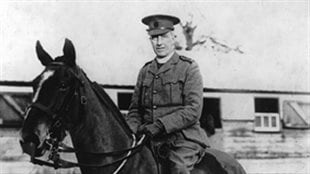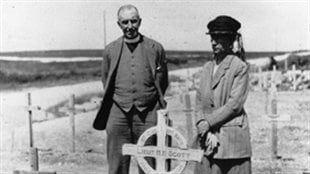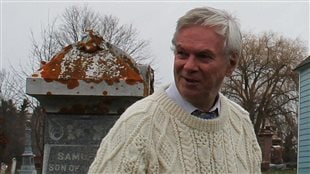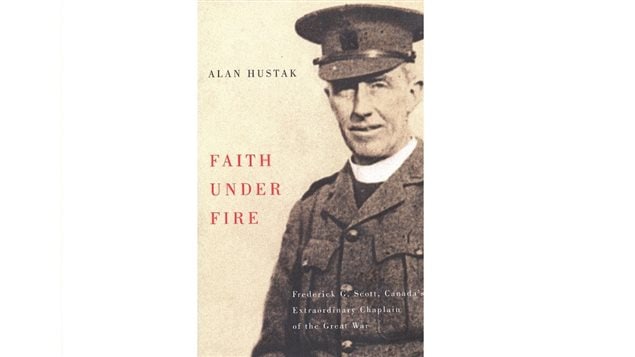In 1914, none could imagine the horrors and loss awaiting the world, as millions of young men marched off to war.
Already in middle-age, Canadian Frederick G Scott, a respectable priest, was very much of the Victorian and Edwardian mindset of his time.

He firmly believed in the righteousness and superior morality of the Empire, and quickly volunteered his services to the military.
As it turns out, armies of the time were not too keen on chaplains in the service, but through his determination, connections, and no small amount of subterfuge, Chaplain Scott found himself in England, and then in France, and then at the very front lines.

It was there, within range of the shell fire and bullets that he spent most of the war, as a soldier without a gun.
He wrote a good deal of poetry, again very much of its time, and often insisted on reciting it to others, often boring those whom he foisted it upon.
However, the troops generally admired him greatly for his courage in staying amongst them at the front, ministering to the sick and dying, and risking his life with theirs.
The bloody slaughter, including that of his own son, changed him upon his return.
He took up the cause of the social welfare of soldiers and others in the great hardships they faced in a post war economy where there were so very few jobs, no benefits for those who had risked all and greatly suffered for their country, and where a few were living comfortably rich lives while so many were hungry and impoverished in the post-war economy.

Journalist and author Alan Hustak was fascinated by this complex man; strict religious priest, romantic poet, brave soldier, loving family man.
His book is called Faith Under Fire- Frederick G Scott, Canada’s Extraordinary Chaplain of the Great War







For reasons beyond our control, and for an undetermined period of time, our comment section is now closed. However, our social networks remain open to your contributions.